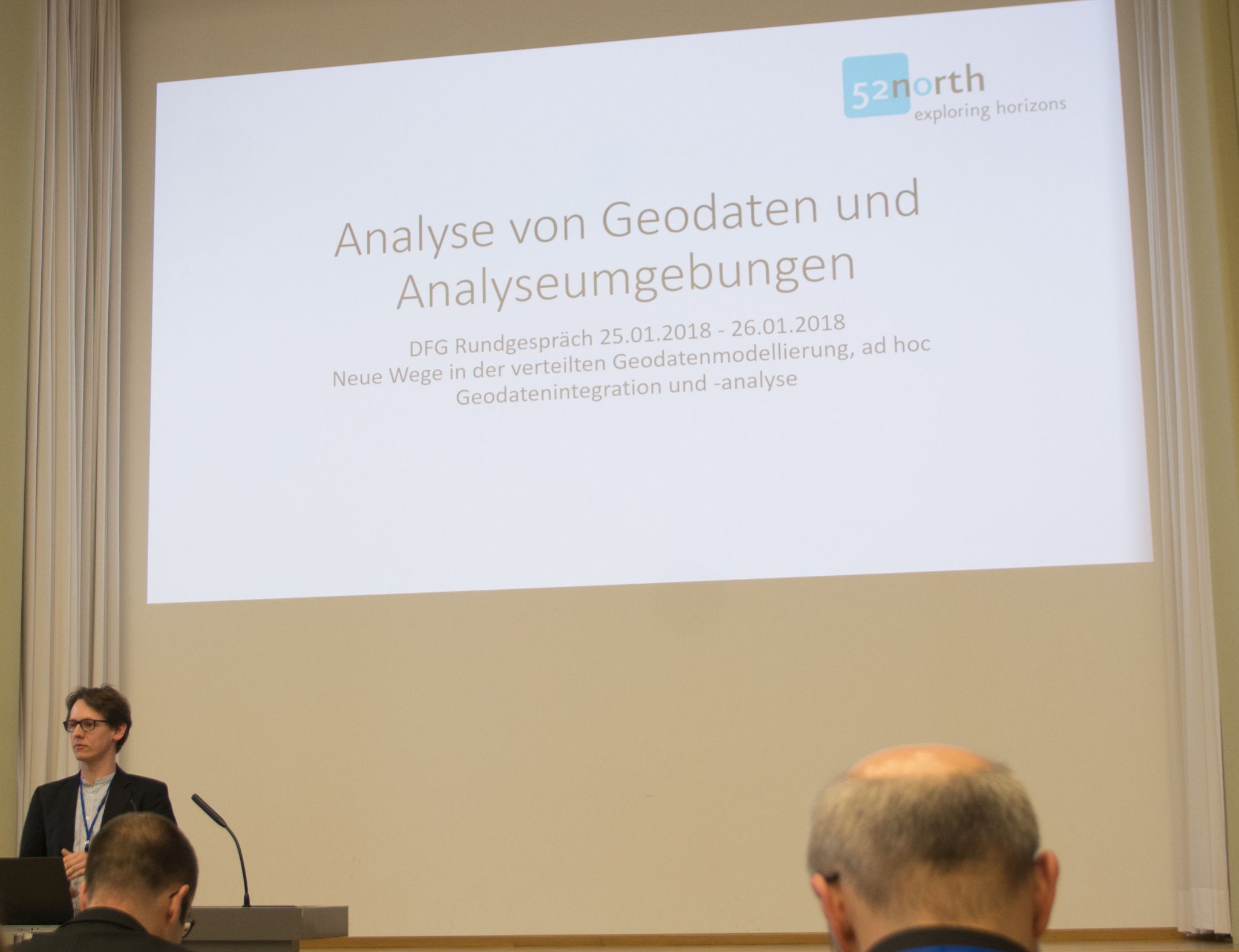DFG Round Table discusses research challenges in Geoinformatics.
Last week, a DFG round table on “new solutions for distributed Geodata modeling, ad-hoc integration and analysis” took place at the Technical University of Dresden. It was organized by Prof. Dr. Lars Bernard, Prof. Dr. Jochen Schiewe and Prof. Dr. Monika Sester.
52°North’s Dr. Benedikt Gräler joined the group of 30 researchers from various geo related disciplines to discuss current and upcoming research challenges in geoinformatics. He gave a 10 minute pitch on upcoming challenges in the analysis of geodata and analysis frameworks that are likely to be relevant in the future. In addition to the rapid advances of Machine Learning (ML), related approaches and cloud infrastructures, he stressed the importance of probabilistic model based approaches, since many environmental phenomena do not (yet) provide enough data. In particular, the modeling of spatio-temporal extremes will remain an active field of research where typical ML approaches are hindered by the scarcity of data. The need for a natural and integrated view and understanding of spatio-temporal data across different sensors emerged as one overarching topic of the round table. This integrated view accompanies a “change of support” problem as the different spatial resolution and support of various sensor systems need to be mapped.
